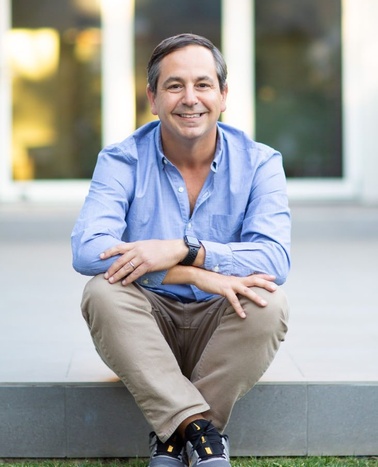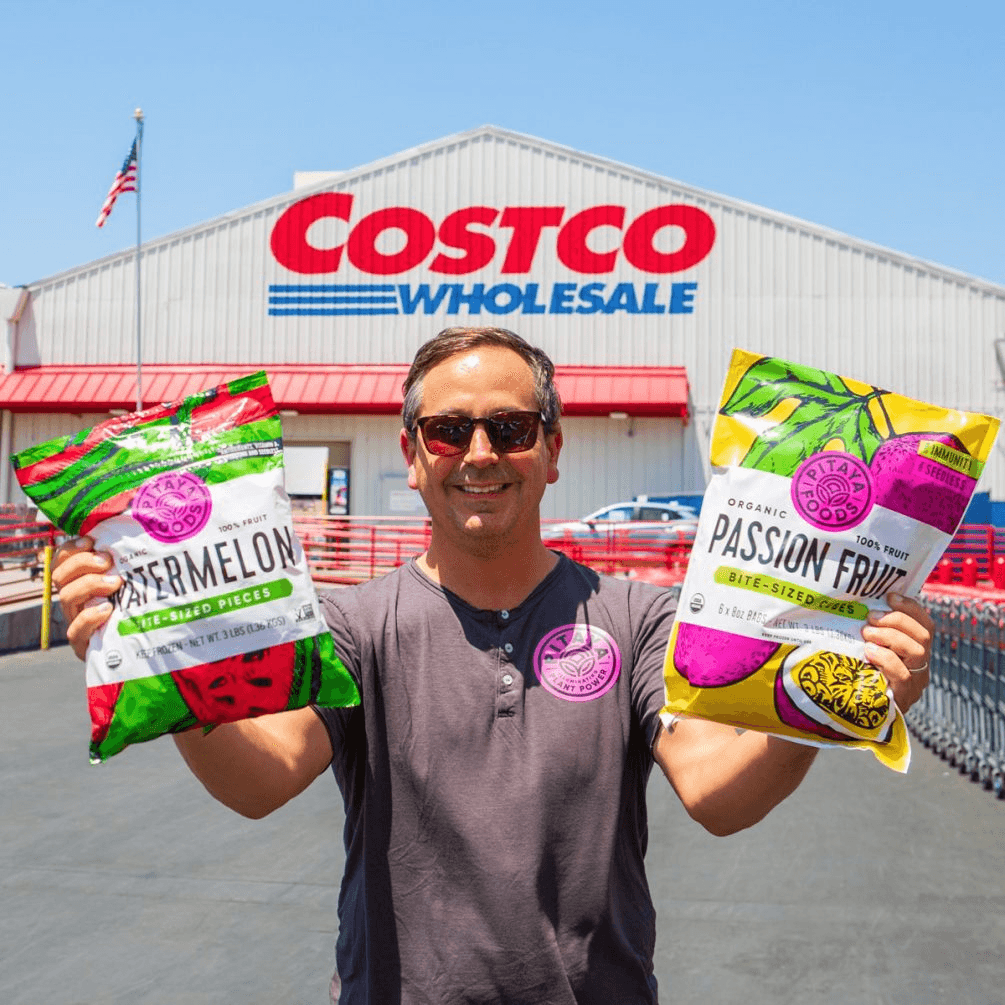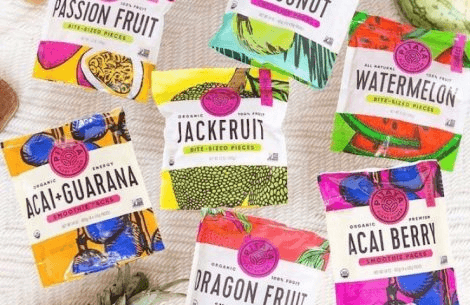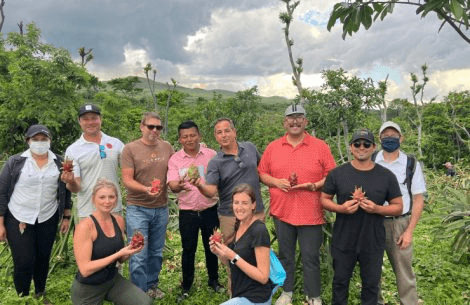
Chuck Casano
Born in New York and attended Villanova University. He worked in Sales and Marketing for IBM when he decided he wanted a career change, so he attended IE University. He later went to work at a non-profit down in Nicaragua focused on agriculture. It was this experience that led him to launch one of the largest superfruit companies in the world, Pitaya Foods. Pitaya Foods products can be found on the shelves of over 20,000 retail locations from Whole Foods Market, to Costco, to Walmart. He is also the founder of a natural foods’ distribution company, Hi-Touch Distribution. Hi-Touch Distribution works with over 40 brands and distributes their products to all of the natural grocery stores in Southern California & Arizona. www.PitayaFoods.com / www.HiTouchDSD.com
"Focus and invest in the subjects and classes that you are interested in, and don’t stress out about challenges in classes that don’t apply to where you want to grow professionally."
Q&A WITH CHUCK
Define your experience in the IMBA program in one word.
Divertido!
Why did you choose to study this program at IE?
I studied in Sevilla during my University years and always wanted to return to Spain. I wanted to start my own business, so as soon as I learned about IE’s entrepreneurial focus I applied as fast as I could.
How did your experience at IE prepare you for your professional career? In what ways do you think the program has changed your life professionally and personally?
Professionally, I have always been a hard worker and managed to start a few successful businesses before my time at IE. However, they were very disorganized. IE gave me the tools I needed in accounting and strategy to build solid foundations to my businesses after I graduated. Personally, it opened my eyes to so many cultures that I never had exposure to and gave me a much broader global perspective. I am so grateful for the friends I made during my time, and even after 15 years I still keep in very close touch with my friends all around the world.
What is your favourite memory from your time at IE?
My favourite memory was having the opportunity to present campus life with my close friends to the next incoming class. Everyone tries to be so serious during the first few weeks, so we made sure to bring some fun to the presentation and had a lot of laughs. I hope it helped show the new students they can incorporate fun into their studies.
What is one thing you wished you knew, when you were a student?
I wish I knew what business I was going to start before I went to IE so I could leverage a lot of the resources that IE has to help build my business plan etc.
Can you tell us about the challenges you encountered after graduating from the IMBA? How did the program and IE help you overcome these challenges?
The biggest challenge that I had was the economy. 2008 was an extremely challenging year because of the financial crisis so trying to find a job in investment banking was literally impossible. The IE Alumni network and friends I made during my time in Madrid is what helped me get through those tough times.
You were forced to change your career path after the financial crisis in 2008. What skills were useful to successfully pivot your professional career?
My greatest skill is my ability to network. I am not afraid to pick up the phone and talk to as many people as possible who may have some advice on some of the challenges I am facing. I think it is a cultural thing because it seemed Americans are more forward about asking for help, whereas most Europeans seemed guarded and hesitant to reach out for advice.
What’s the story behind Pitaya Foods?
Pitaya Foods is a story 12 years in the making. I am proud to say I followed my heart, worked hard, and didn’t settle for a corporate job. It took a lot of sacrifice in the early years, but looking back, I would not have changed a thing. Every challenge is an opportunity to learn, and nothing happens overnight.
How did your experience with a non-profit organization changed your perspective on doing business?
Non-profits do a lot of good in this world, but working for one made me realize you can be more sustainable and have a longer lasting impact building a profitable business where all of the stakeholders in the supply chain benefit. I am a capitalist at heart and feel great that my business can positively impact the communities that we source from. Instead of chasing donations, we chase sales that help everyone involved. All companies can choose the suppliers and partners they want to work with, we love working with and supporting partners who are aligned with our mission.
How important is it for you to own a business that’s purpose-driven and that makes a positive impact in the world?
Selfishly, it feels so good to work on something every day that has a positive impact on our planet. Our social mission to improve the communities we work with is the core of our business and impacts every decision we make. It has also had a great impact on the growth of the business and attracting talent. Employees today want something more than a paycheck, and the type of employee that wants to help make a positive impact are usually rockstars!
Are entrepreneurs born or made?
 I would say both. I have been working since I was 12 years old and haven’t stopped. I am always fascinated by how many different ways there are to earn a living, which has always fuelled my drive to work and learn. I feel like I was born an entrepreneur, but also think they can be made.
I would say both. I have been working since I was 12 years old and haven’t stopped. I am always fascinated by how many different ways there are to earn a living, which has always fuelled my drive to work and learn. I feel like I was born an entrepreneur, but also think they can be made.What are the most satisfying and the most difficult parts of being a CEO?
Ironically, the most satisfying part of being a CEO is also the most difficult. For example, we now source fruit from 1000 small family-owned farms down in Nicaragua. There are probably 3000 kids that live on those farms and depend on us buying that fruit to survive. The local market could never support that amount of product, so if we don’t buy it the market would collapse. It is very difficult carrying that burden, but it is also very satisfying knowing we have the ability to make such a positive impact in their lives.
What advice would you give to young entrepreneurs?
Get to work and be patient. I see so many would-be-entrepreneurs over-analyze themselves out of getting started. You are going to make mistakes, you are going to have set-backs, just keep working and moving forward. Set small goals for yourself and celebrate the little wins. Don’t expect to be a success overnight and stay humble.
What is the secret to having a successful career without sacrificing your personal life?
Do something you love and surround yourself with people who share your vision. I was lucky enough to start my business with my girlfriend who is now my wife. We both made a lot of sacrifices in the beginning to launch the company, but we were also young and didn’t have a lot to lose.
How is the Chuck of today different from the Chuck who graduated from IE?
I don’t sweat the small stuff. I have already overcome so many challenges to get my business to where it is today. In the beginning you wake up every day thinking your business is going to fail, now instead of worrying about failure I can concentrate on moving forward.
What’s the most valuable lesson you have learned throughout your career?
It sounds cheesy, but follow your heart and do something you are excited about. Life is seriously short, so make the most out of it.
If you had a billboard that you could display to the world, what would you write on it?
EAT MORE FRUIT!

